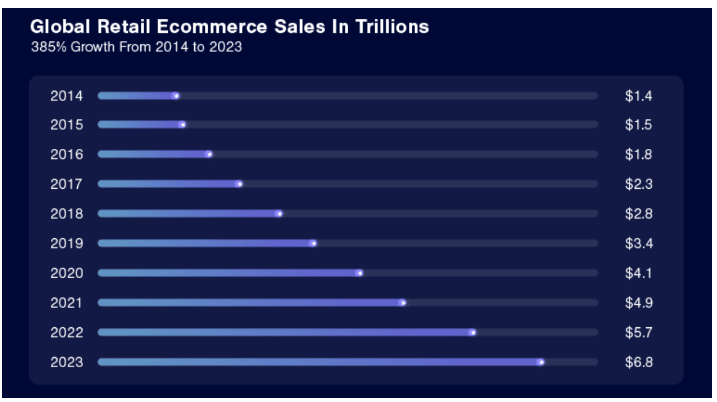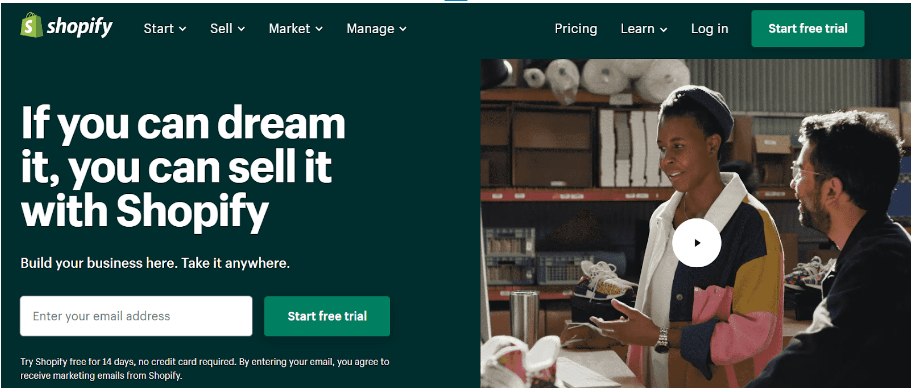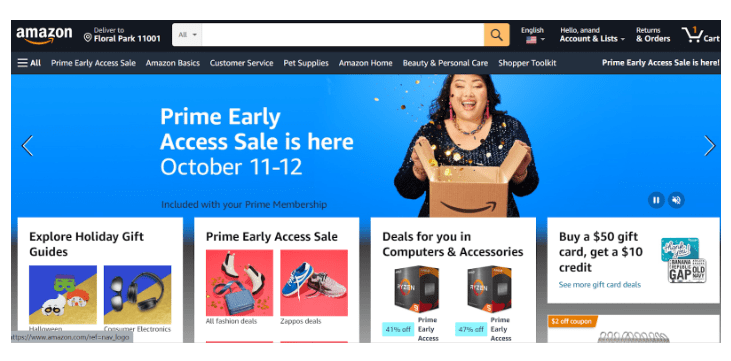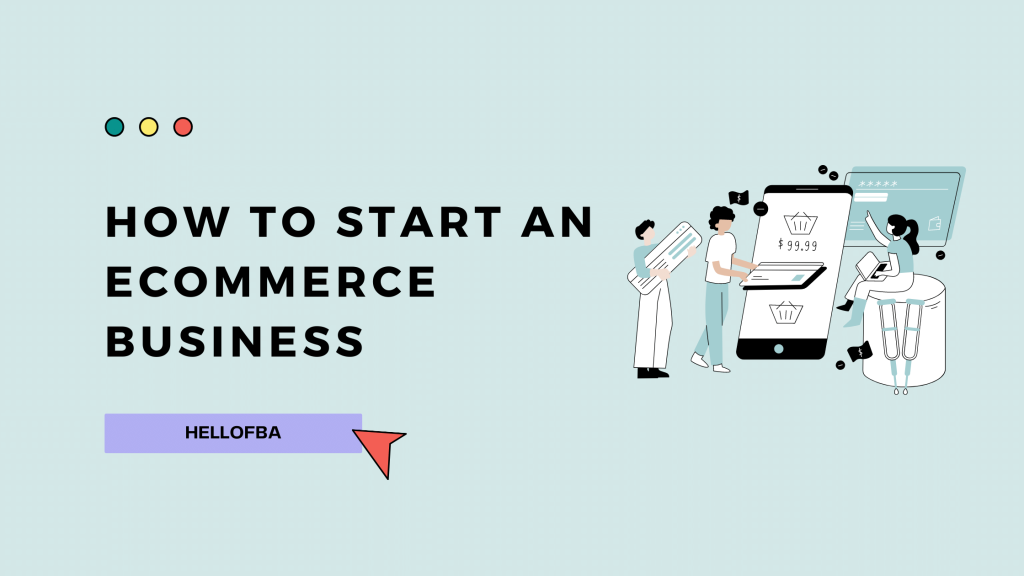Want to know what it takes to start your own e-commerce journey? This guide will uncover all the details you need before you begin your online store. So stay tuned.
As the internet becomes more and more accessible to the common people, online shopping is no more just a trend or luxury. It’s rather a necessity. In the last 10 years, global e-commerce sales have skyrocketed from $1.4 trillion to $6.8 trillion. No wonder every day, thousands of independent sellers and businesses are going online in order to take a piece of the cake.

But, launching and running an e-commerce business is not as straightforward as it seems. You need to understand the market trends, the overhead cost, and most importantly, the competition before you hit the road.
In this article, I am going to explain what steps you need to take in order to launch your e-commerce business which is profitable, long-lasting, and scalable.
How to Start an E-commerce Business: Step-by-Step Guide
E-commerce is full of opportunities, but not every business gets a flying start. It takes more than just a great idea to ensure longevity and profit. According to a survey, more than 50% of online businesses close within the first year. But, with proper planning and smart decisions, you can avoid that risk.
So what do you need to do to create a reliable and successful e-commerce business? Let’s discuss this in detail.
1. Choose E-commerce Business Model
Before you begin, let me tell you that an e-commerce business is not just selling products online. There are several ways you can get involved in online business and earn a decent monthly profit.

Choosing the business model is straightforward. If you want to sell the items without managing the inventory whatsoever, Print on Demand or Dropshipping is the best option for you. You can go with Wholesale if you own a big enough warehouse to store products in. If you want to deal with one particular product or product category, Private Labeling is a good place to start with.
As you can see, the choices are there, you just need to figure out what you can manage the best. Affiliate marketing is another latest emerging business where you focus on a single product and market it using your Social media channels and earn a decent profit for it.
2. Find Your Niche and Target Audience
This is one of the most important steps in your online business setup process. Ideally, the businesses that focus on a particular niche/product have a higher success rate than the ones that want to sell a bit of everything. So, unless, you have a massive capital to start with, choose a niche and go along with it.

But, this has to be done smartly. Pick a niche that is competitive enough but not too much. If a niche with no competition simply reflects a poor market, clearly not worth digging into. A highly competitive niche where all the big brands are peddling, may not be easy to survive as well.
It all comes down to personal preference; what your budget allows, the level of competition you are prepared to face, and so on. Simply study the top brand, selling in a niche to figure out whether it’s profitable or not. Low competition and high profit should be the ideals while selecting a niche.
3. Look for Product Ideas
Before you go product hunting, understand that you can’t expect people to buy whatever you sell. The choice needs to be smart and targeted at specific customers.

You can browse through online stores to find out the product categories that you can sell items from. The smartest thing to do is to use a product research tool. These tools help you find the top-selling products for your niche. Additionally, they can extract past sales data, expected profit margins, and a bunch of useful details that you can use to make a product selection.
The next step is to look for suppliers for your products. Evaluate and compare the prices and shipping charges carefully and go with the one that offers the lowest prices without compromising the quality. A smart thing to do here is to order a small sample to get a feel for the product before you order the big quantities.
Here are a few things to keep in mind before you pick a product:
- Product demand
- Selling cost
- Storage cost
- Profit margin
4. Choose A Business Name and Register your E-commerce Brand
The next step is to choose a name for your business. Always go with a unique name that represents your brand and business style. Don’t use names that sound similar to other popular businesses. Also, make sure whatever name you choose, there is a domain name available for that as well. You don’t want to have a different domain name than your business brand name at any cost.

You will have to go through various legal princesses, including:
- Registering your business name and company.
- Some E-commerce platforms/niches require you to have a business license and permits to be able to sell. Even if you don’t need it at the moment, it’s always better to get one to avoid any future complications.
- To open a business-specific bank account and pay your taxes, you will need an Employer Identification Number.
- Choose the business entity type as it will directly impact your financial/legal operations in the future.
5. Create Your Online Store

Now it’s time to build an e-store for your business. For that, you need to pick a platform. If you want to have your own store, you can go with e-commerce platforms that provide easy drag-drop tools to create any type of store you want. Shopify, BigCommerce, and Wix are some of the platforms where you can sell any type of product including physical items, digital products, online services, subscriptions, and so on.

If you are planning to sell on a multi-brand marketplace, you have Amazon, eBay, etc. But understand that selling on these platforms is totally different and the competition on such websites is likely to be more extreme.

To build your online store, you need to register with your email, name, phone number, etc, and pick the plan you want to have. Make sure the plan you choose allows you to have a personalized domain name to give an online identity to your store. Here are the things to keep in mind before you select the platform:
- Number of site visitors
- Popularity and reliability
- Payment options
- Customer care service
- Affordability
- Domain name support
6. List Your Products and Start Marketing
Once you set up your store, you can start adding products and writing product pages. You can design your store however you want. As I stated earlier, e-commerce platforms provide simple tools to construct professional and attractive online stores. You can also choose from various templates that match your product idea and brand style.

Be creative with product titles and make sure the descriptions include every vital detail about the product that could be useful to customers. A professionally designed product page has a higher chance of converting rather than a poorly made one. Make sure you use all the necessary keywords on the page so that your products will appear for those keywords on search engine results.
You can hire professional authors to write your product descriptions as well. At last, be smart with the pricing. You don’t want to sound too pricy but can’t afford to lose your profit margin, which is the reason why you are here in the first place. Make smart product research, check the top sellers for the products, and compare their prices. Try different strategies, and eventually, you will end up with a perfect product page that converts.
Even the smartest ideas fail if your store doesn’t generate traffic. Remember, to buy something from you, the customers must know that you are selling it. But how do you attract traffic? The answer is simple – A clever marketing campaign.
In this world of the internet, there are numerous ways to spread the word about your store and products. For example, Google Ads, where you pay Google to promote your website for the related search terms. Also, social media is a good place to promote your e-store. YOu can also hire social media influencers to spread the good word about your products in exchange for a small commission. You can also run an affiliate program right from the store and get professional affiliates to market your products on different social channels.
Costs Involved in E-commerce Business
Before you step into the e-commerce business, it’s a good idea to estimate the overhead cost of selling that includes various components. Let’s have a look:
- The monthly cost of the e-commerce platform you are running your store on.
- Cost of legal permits and licenses (EIN, business registration, business license)
- Website hosting fee
- Domain name fee
- Inventory shipping charges
- Storage and maintenance cost
- Product packaging, shipping, and delivery costs
- Payment processing costs
The Bottomline: Why Should You Start An E-commerce Business?
Is e-commerce business worth your time and money? Definitely Yes!
The single best advantage of having an e-commerce business over a brick-and-mortar store is that you can market your products to millions of customers in no time. Also, online shopping has become more convenient and people don’t have to walk from store to store to look at and compare products and prices.
However, just like a conventional business, you need a lot of planning and financial security (in some cases) to be able to survive in the competitive online business space. The key here is patience.
Here are some tips:
- Take small steps. Don’t expect to start selling immediately. Analyze the market and improvise accordingly.
- Don’t compromise with your profit. It’s the only thing that will keep you in the business.
- Try to sell on multiple channels. It will help you create a brand faster.
Frequently Asked Questions:
To start Ecommerce business you need to do product research, choose a business name, register your business, select Ecommerce software, create a website, and start marketing your business.
Of course, an Ecommerce business is much more profitable but starting an Ecommerce business is a marathon it takes two years to get off the ground, and you can’t measure the success of your business on the profitability of the first year.
No, it is very easy to start your own E-commerce business, there are many platforms that your brand to go online within a few days.

